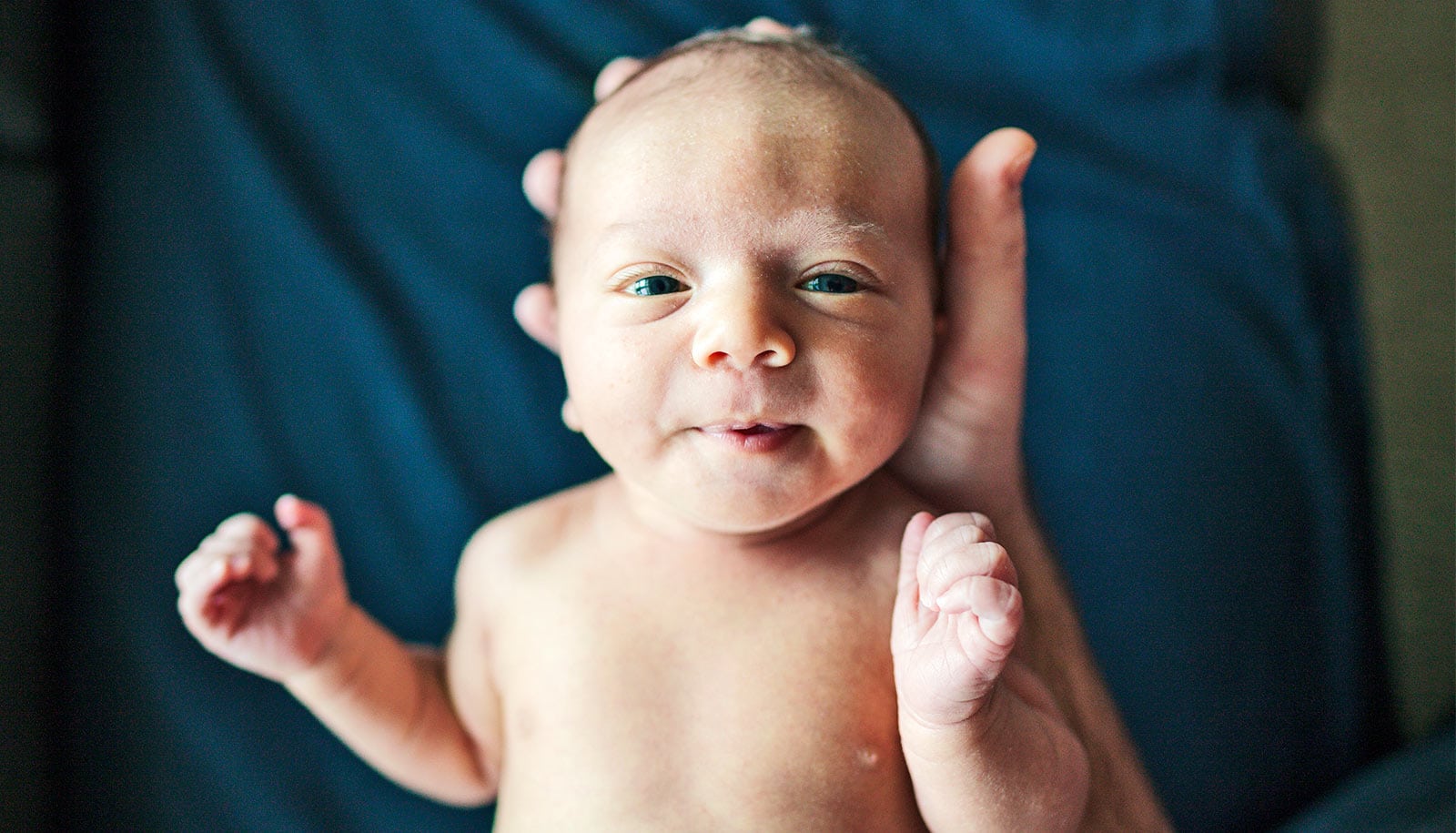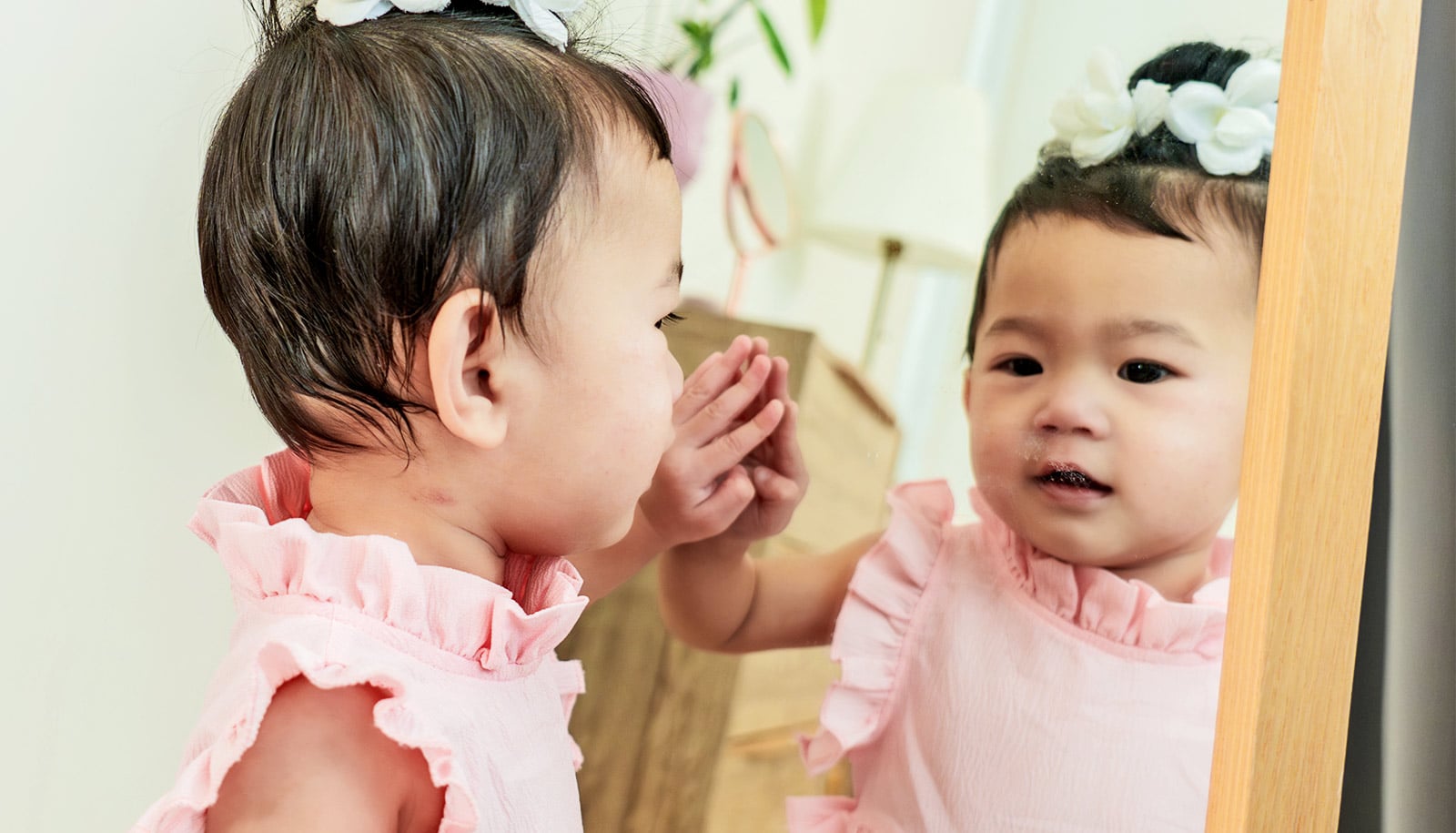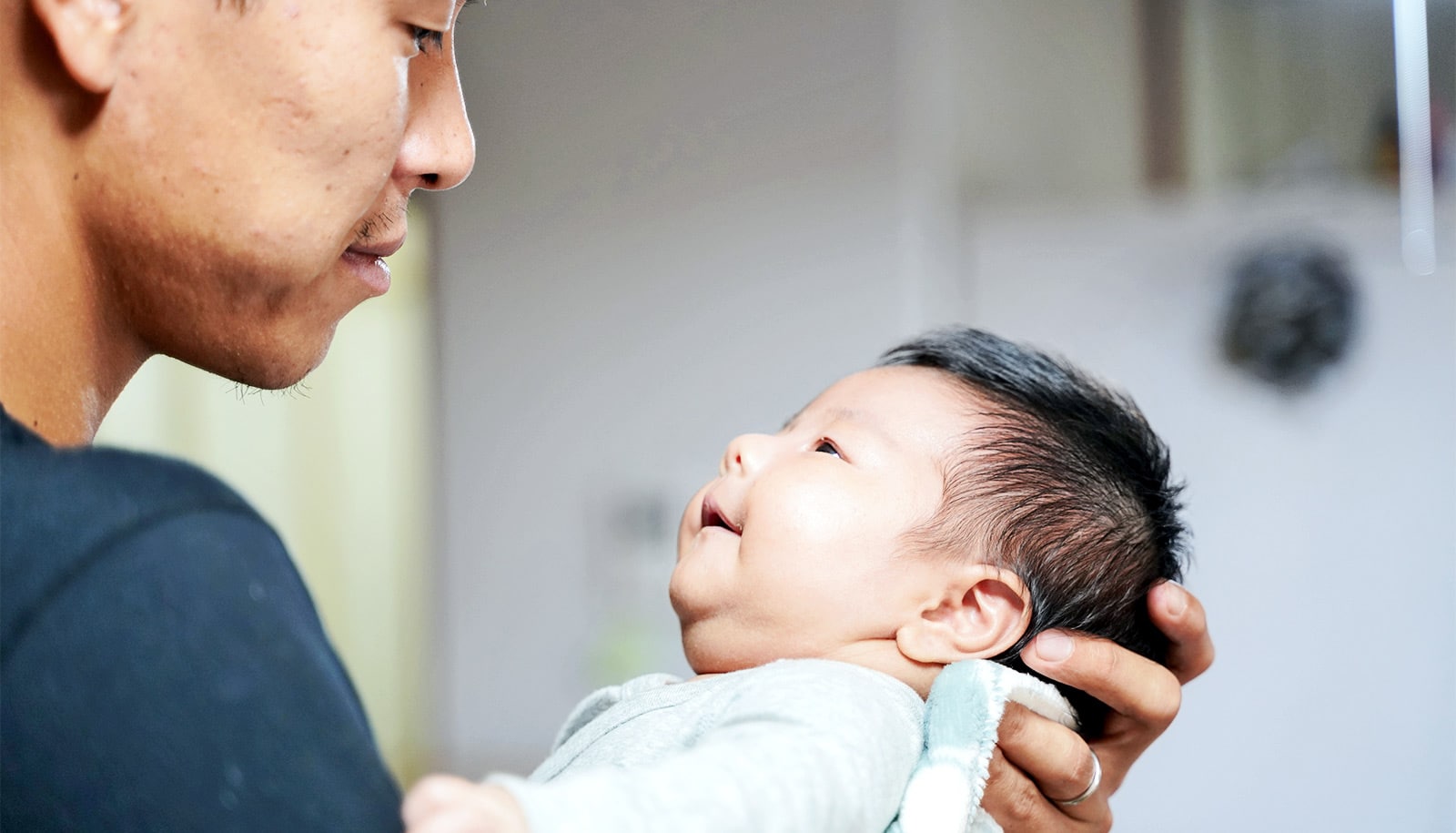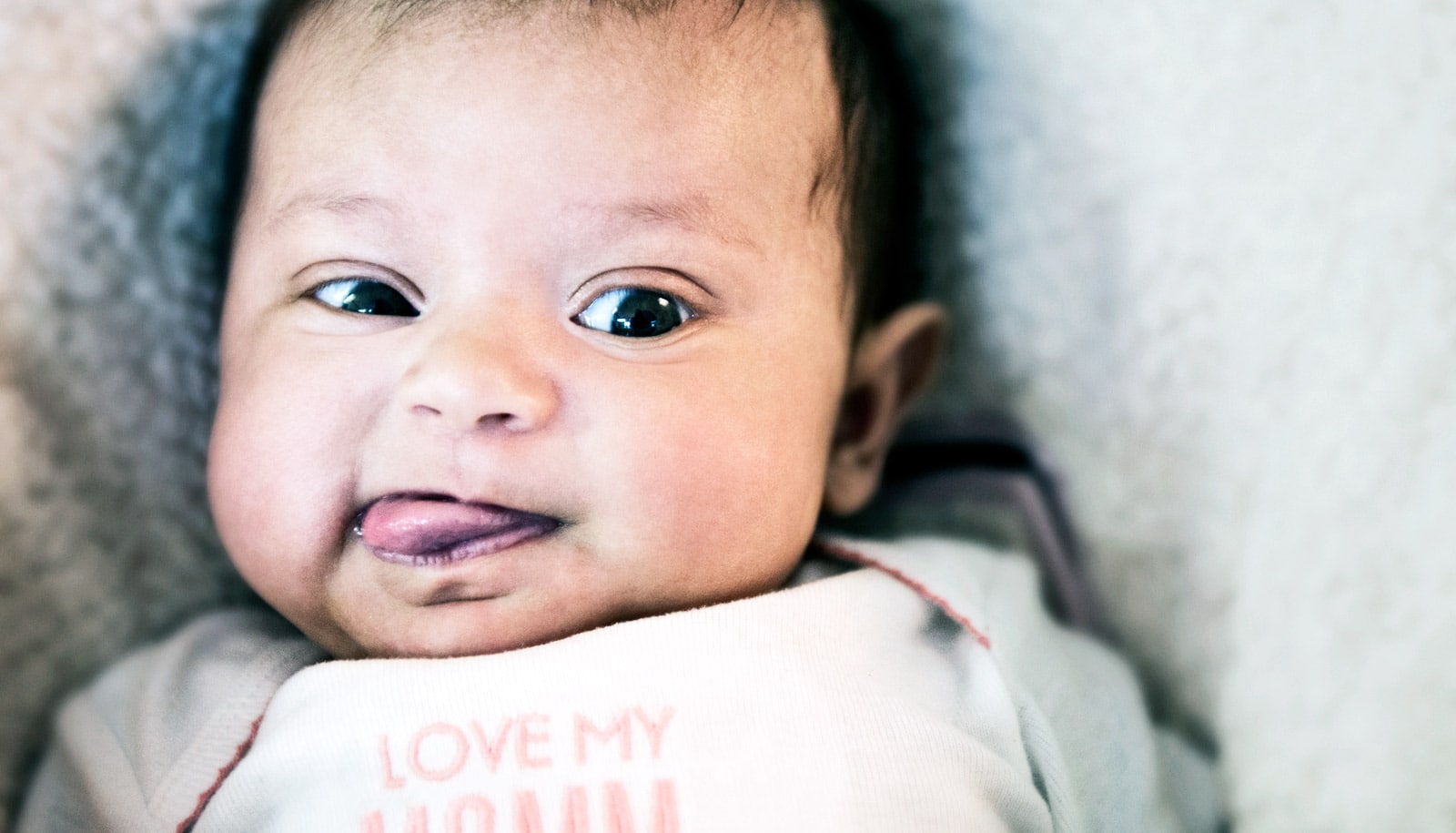Based on recent studies measuring babies’ brain activity and eye movement, the case for consciousness in newborns is increasingly strong, according to a new article.
Babies blink, cry, and yawn—and a few weeks into their lives, they might smile. But do these movements mean that newborns have conscious experiences of perceiving the world around them? Or are these processes happening unconsciously?
In recent years, scientists have paid increasing attention to consciousness—our subjective experience of the mind and the world. They’ve studied consciousness in adults, in people with mental disorders, and even in animals. But until recently, consciousness in newborn infants has been poorly understood.
The new evidence for consciousness relies on methods that creatively measure brain activity in newborns, which is not an easy task. Infants can’t respond to verbal cues or directions and sleep quite a bit, making their minds difficult to study.
“Neuroscientists often describe the infant brain and behavior as very noisy—it’s difficult to extract information, and what’s going on is not as clear as in adults,” says Claudia Passos-Ferreira, assistant professor of bioethics at the New York University School of Global Public Health and author of the new article in the journal Neuron.
Passos-Ferreira’s article discusses the novel ways that scientists gauge whether babies are conscious: measuring brainwave responses to unexpected sounds, using imaging to evaluate the brain’s networks, and tracking eye movements such as blinks and pupil changes to see how babies react to different stimuli.
The studies show that cognitive processes related to consciousness may begin functioning in babies earlier than had been previously thought.
Here, Passos-Ferreira talks about what the latest research reveals about when consciousness emerges in human development:
How did you begin studying infant consciousness?
My previous work focused on the self and morality and how these things develop. I realized that there had not been much progress in philosophical discussions about the early stages of when we become conscious. So, I moved my research and now I’m focusing on when and how our conscious mind develops. Are there stages at which we acquire different cognitive abilities, and does this change the type of conscious experience we have?
For example, when babies acquire a language, it changes the way they reason—but what does this mean for how they consciously experience the world and their bodies?
Aside from the infant brain and behavior being “noisy,” what are other challenges of studying consciousness in babies?
First, babies sleep a lot. Because consciousness requires awakeness, babies need to be awake to be tested. Infants have sleep states that are not completely like ours; they fluctuate between “active sleep,” which is close to being awake, and “deep sleep.” By only relying on behavior observation, it can be hard to determine whether infants are sleeping or awake. What scientists have done is try to correlate awakeness with other kinds of physical measures, like heartbeat acceleration or heart rate variability.
We also cannot give a verbal command to a baby—”Raise your hand” or “Move your mouth” or “Open your eyes if you hear me”—and expect them to follow. There is no communication in this sense. And it’s not just because of a language barrier, because we can train animals to give this type of response.
What are some of the ways that scientists have figured out how to measure consciousness in newborns?
We know that the brain has different networks involved in consciousness. One network is for external awareness: when we are aware and attentive of stimuli in our environment and perform a cognitive task that is related to the environment, we activate this network. Another one is for internal awareness: when your mind is wandering or you’re imagining things, or when you’re not engaging in a task and are in a resting state, you activate a different connectivity or network in the brain.
When you’re conscious, there is a reciprocal activation with these two networks. If you are aware of your environment and perform some type of cognitive task that requires awareness of an environment, internal awareness decreases, and vice versa.
We had thought that as the infant brain was developing, we wouldn’t find these networks. More recently, with better brain imaging—and not just better ways to access the brain, but a more systematic way to collect this data and the use of data aggregation from a large sample of infants—we’re seeing a pattern emerge that confirms the idea that, in early stages, these networks are well developed and the brains of infants, although still immature, are already working in this reciprocal way with the two networks.
Another piece of evidence shows that newborn brains react like adult brains when they experience something unexpected. In a study using a sequence of high and low pitch sounds (like be-be-be-bo), researchers found that after hearing the sequence repeated several times, the infant brain learns it and reacts with surprise if the sequence changes (like be-be-be-be). Since adults need to consciously perceive those sounds to be surprised, this suggests that newborns are also consciously perceiving those sounds to have a similar reaction.
Does the research say anything about consciousness before birth?
There is still an open debate about consciousness during pregnancy. It is widely believed that consciousness requires a thalamocortical structure, and this system develops at around 26 weeks of pregnancy, so it is unlikely that consciousness is present before that time. But even after fetuses develop the brain structures needed for consciousness—meaning they might have the capacity for consciousness—they might not be deploying this capacity because of chemicals in the womb that keep them sedated.
One of the studies that used non-invasive measures of the brain’s electrical currents in infants also looked at the brains of fetuses older than 35 weeks of gestation—during the last weeks of pregnancy, and when some babies are born preterm—and found that fetuses in the final weeks of gestation might be capable of consciously processing stimuli outside the womb.
Does knowing that infants likely experience consciousness change how we interact with and care for them?
I think this is really important for infant care and parents’ relationships with infants. Unlike in the case of animal rights where people sometimes have to be convinced that animals are suffering, parents usually already believe that their babies are conscious creatures and can experience suffering and pleasure. They try to make their babies comfortable and ensure that they have an adequately stimulating environment for their development. Parents do this in a very intuitive way, but if we have a better understanding about infants’ conscious minds, we may be able to enhance the way we relate to babies.
Knowing when and how consciousness emerges may also be useful for pediatric care. Until quite recently, people thought that infants needed more brain development to be able to feel pain. Now we know that even if it’s not the same type of pain that adults feel, infant pain is very close.
There are interesting results showing that 20 areas of the adult brain react to pain, whereas newborns have 18 areas activated, so we think it’s pretty close to the type of experience we have as adults. Even though the infant brain is still developing, the feeling of pain seems to already be there—how they feel it, when they feel it, the intensity, and other types of experience they might have.
Source: NYU



